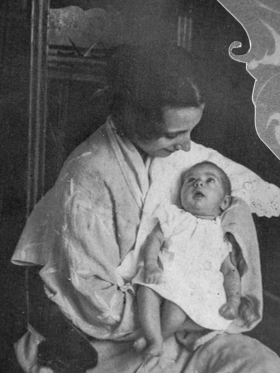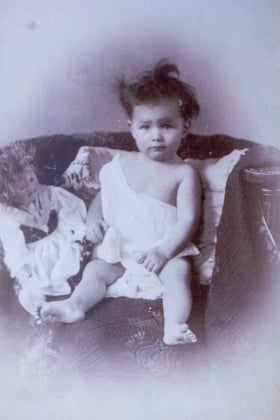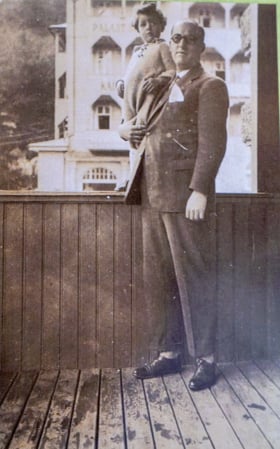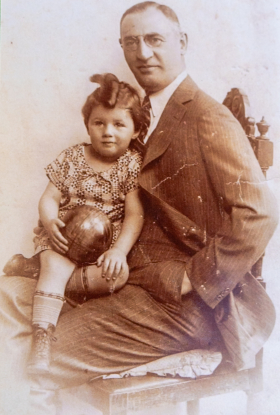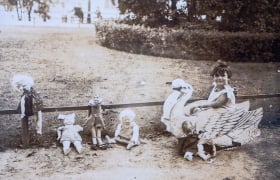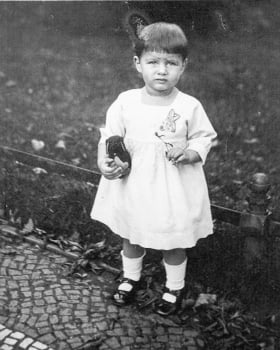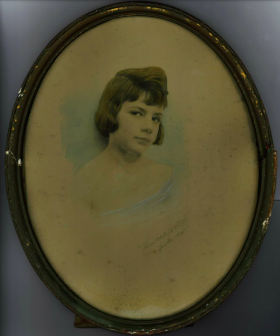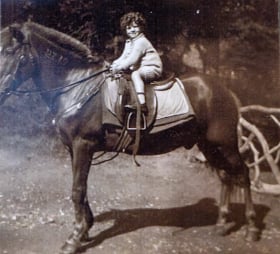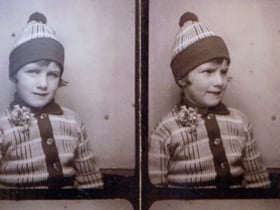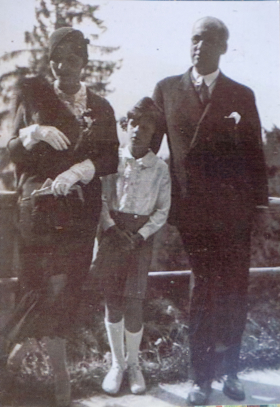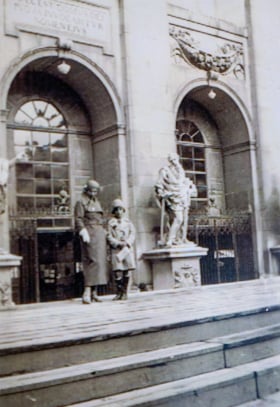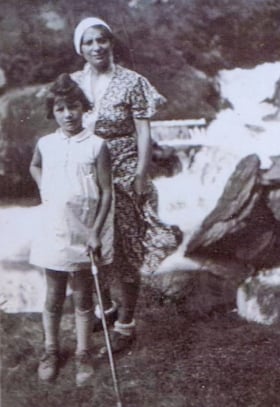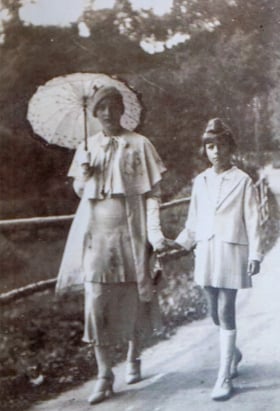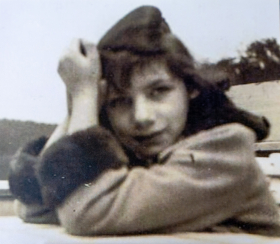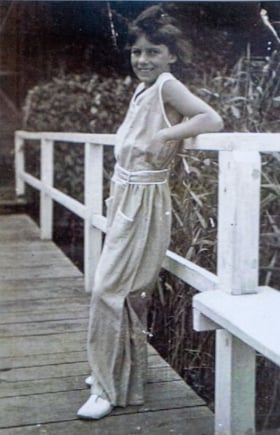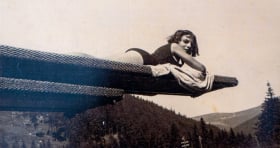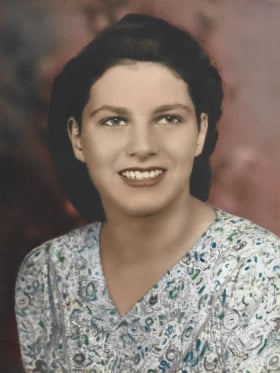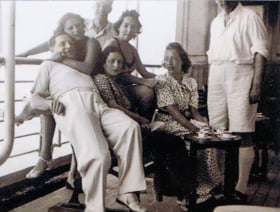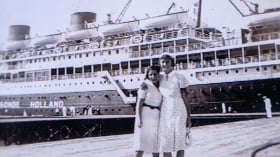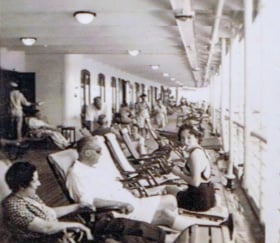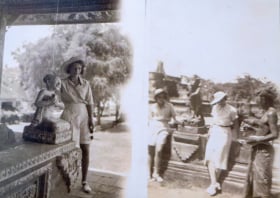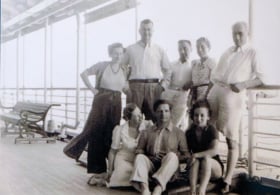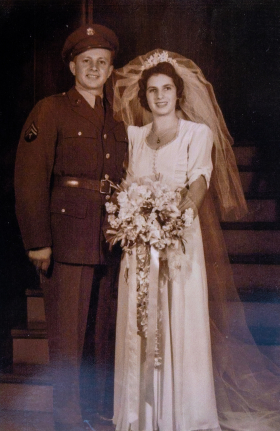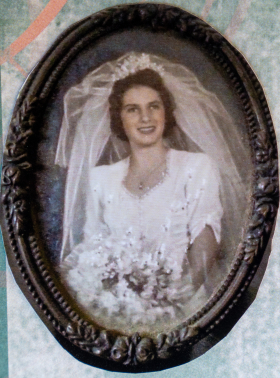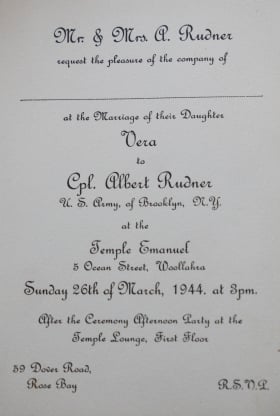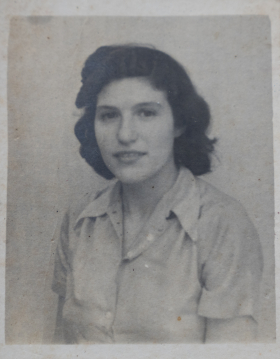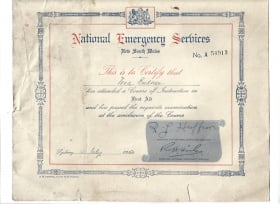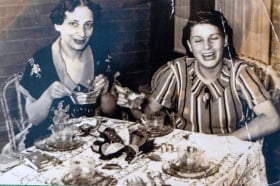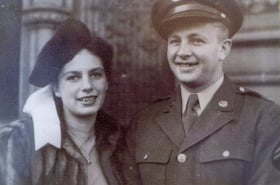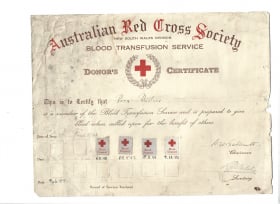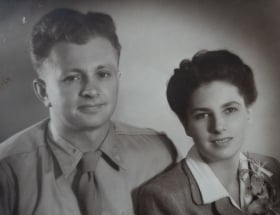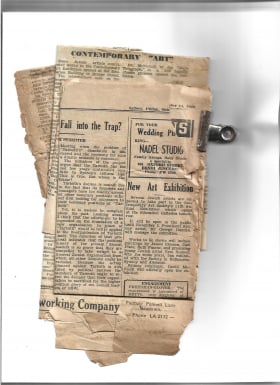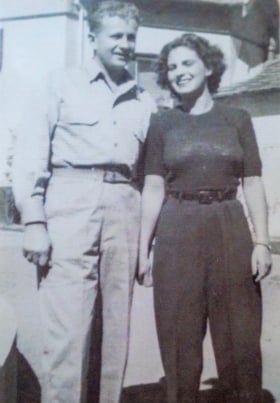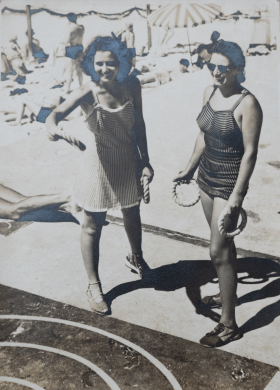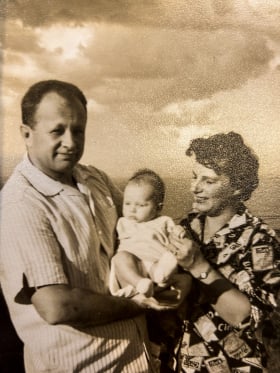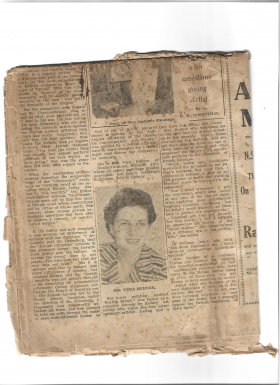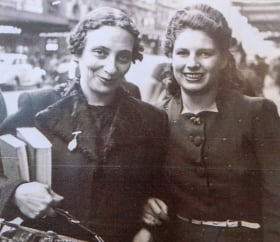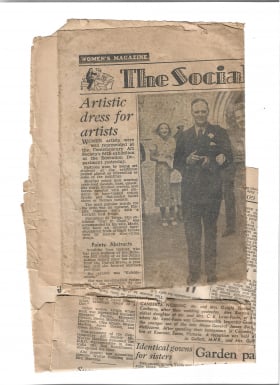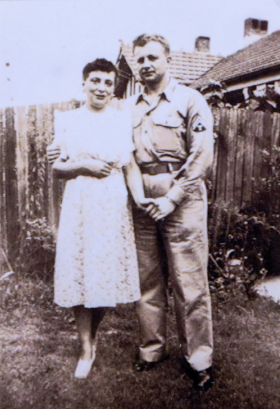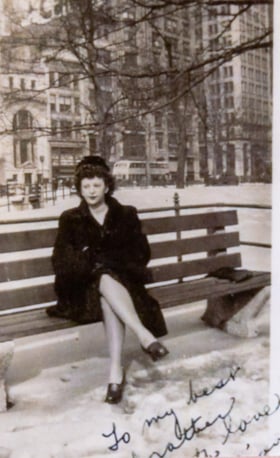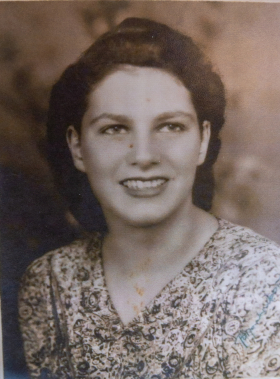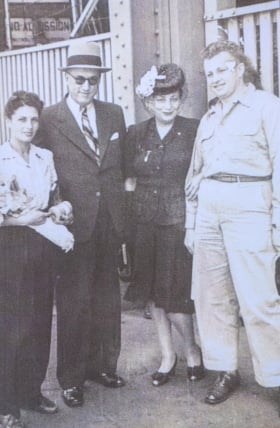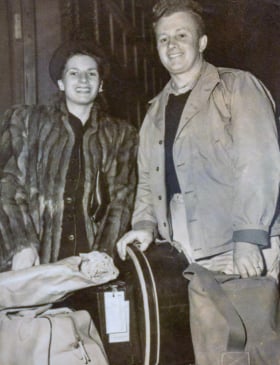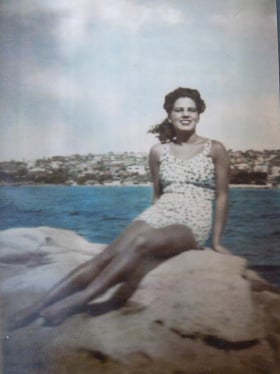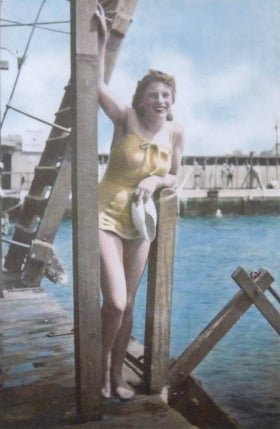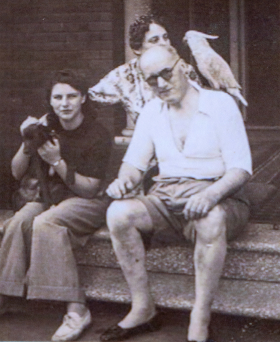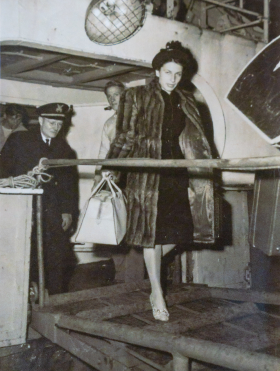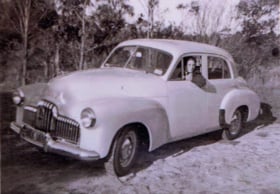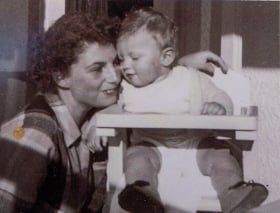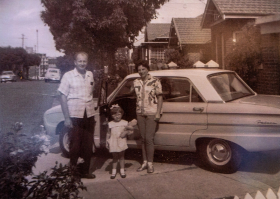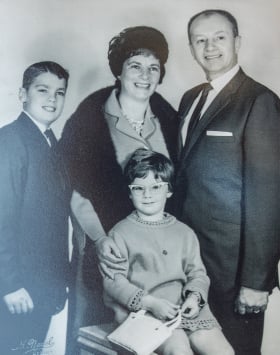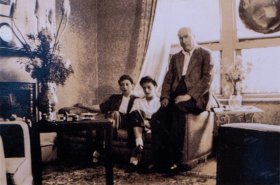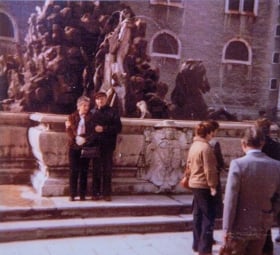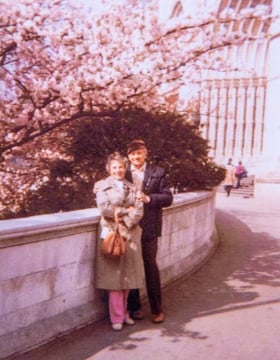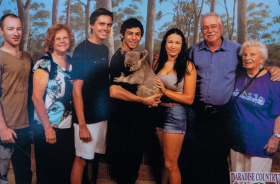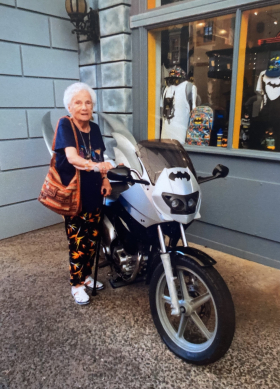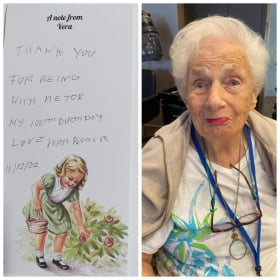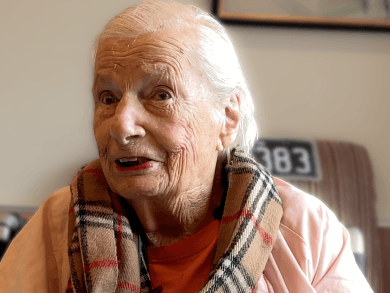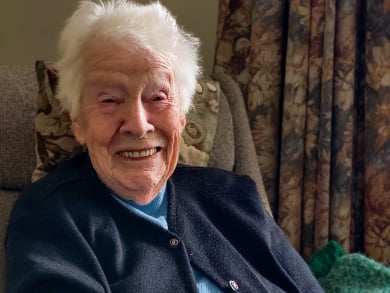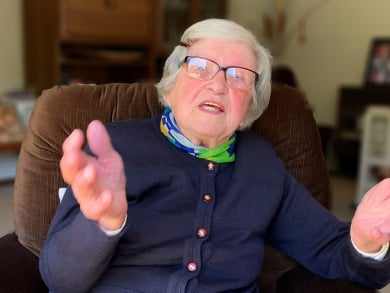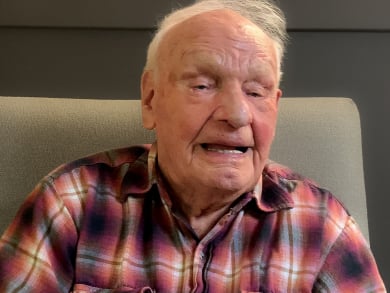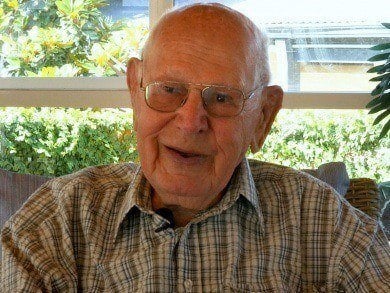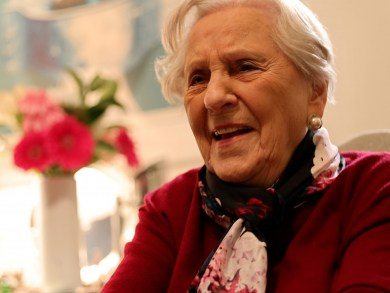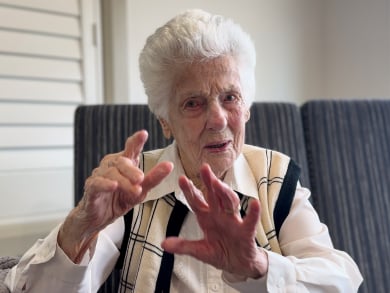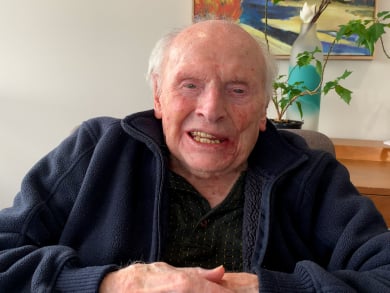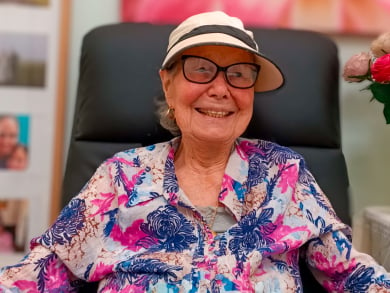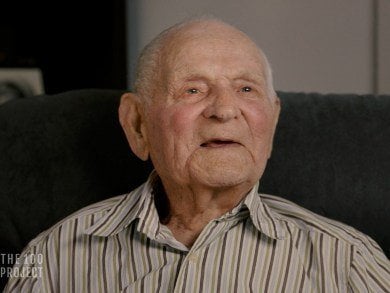I was born in
Berlin in Germany in 1922.
I remember
standing on a balcony...
Where was I in Berlin?
I was looking up and the zeppelin went by.
You know, memories going by like that.
I was always sitting in the
in the last row
I was drawing and I don't know what else,
but I wasn’t listening very much.
I was good at the rings.
Gymnastics, yes.
I loved my ice skating.
Yes, and winter
and the tennis courts...
They make them freeze over.
I remember I used to be in movies,
in silent movies.
So then they asked me,
what language did you speak?
I remember
sitting up on a sort of a balcony.
My mother gave me morning tea
and the extras were all standing down
there looking up
and envying
me for I was
eating things
and they didn't have anything to eat.
The memories that come back in pieces,
you know,
one minute
they're there and then they’ve gone.
My father used to take me to the museum
every Sunday morning.
And he always made me
look at one painting at a time.
And I never got through all of them.
I think that he took me
so I could remember them.
Before we left Berlin,
we went to Kempinski
and we had our last meal in Berlin
at Kempinski.
I had my gramophone with me
when they asked me at the border.
“Why did you...?” I said, “Well,
they're always giving me parties
when I go there
and so now I'm going to give them a party.
That's why I’ve got the
gramophone with me”.
Overnight we went
to Holland
and we stayed with my cousin in Zandvoort.
We were waiting there to see whether
we would be able to come to America,
I think, or to Australia,
and Australia came first.
My mother’s cousin was here.
My father, Adolph,
Adolph, had a fashion [business].
He was quite well known.
My mother was in the hat business,
my mother was a milliner,
but she only learnt millinery
when we went out [from Europe].
You know, she had to learn something.
She didn't make them herself.
I think she had people make them for her.
She used to make hats for Lady Gowrie,
the Governor's wife.
At one stage my mother apprenticed me
to a milliner.
I hated it, so in order to get out of it,
I screwed up every hat or whatever I made
until they threw me out.
Well, he came up to...
my mother at the millinery business.
And my mother opened the door
and he said that
“My name is Rudner”,
and she said, “Yes, that's my name”.
He says, “No, my name is Rudner”.
Anyway, that’s how it started.
And Rabbi Schenk was supposed to be the...
What do you call it?
But I don’t know, he was interstate
so I had Rabbi Hirschberg
at the Temple Emanual.
And then we went, Albert and I
went in the train
up to the Hydro [Majestic],
and we had two days honeymoon
because he had to get back to camp.
He was in the army.
The America army.
That's my husband with our first Holden.
When I married Albert he couldn't cook.
He couldn't boil water
when he went into the army.
And they wanted to put
him into the military police
and he decided, no he didn’t want to do it.
So he learnt cooking
and became the most wonderful cook.
Everybody came
and wanted to eat what he was cooking.
Albert and...
Ah dear Albert..
The bricks. I always had the bricks here.
I always had a brick wall in there,
whether I had bricks in my head
or something!
I had an art
teacher down in Millers Point.
I was painting for Julian Ashton.
And I remember when the wharf
burnt down in front of us.
At Millers Point.
And I painted it later on and I said,
“What a stupid thing to have painted that
after it burnt down and not before”.
In my mother's house I had a sort of a
studio upstairs and I used to paint there.
We lived in Bundarra Road.
I used to get up in the middle
of the night and start
painting, upstairs overlooking the harbor.
I think I called it
‘Be Back in the Morning’, didn’t I?
Left the toys there or something.
Movement and life, yes.
‘Kaleidoscopia’.
That's an interesting one here.
Some things are getting very hazy
and then they come for a milli second,
become clear,
and then I forget them again.
Ava and I.
And Albert.
And Charles.
Ah, there’s Albert and I.
Yes.
That’s the two of us.
